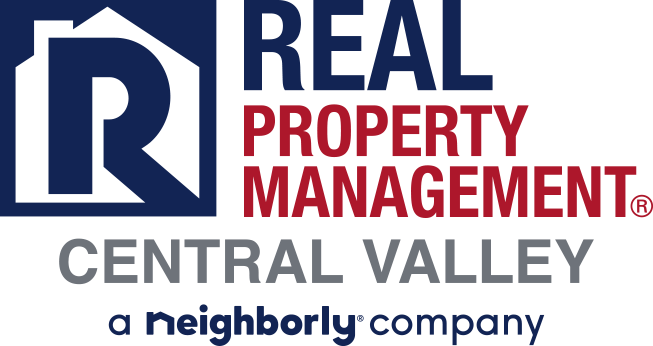How to start investing in real estate, according to a 25-year-old who co-owns 5 properties worth over $9 million

In 2015, Sahil Mehta helped sell his first property in the Berkeley, Calif., area at the age of 18, earning a commission of around $2,000. It solidified his interest in pursuing real estate sales and investments, which has only grown in the ensuing years.
“It was such an incredible feeling, not because of the amount of money but the sense of accomplishment,” Mehta tells CNBC Make It.
Now, at just 25, Mehta co-owns five investment properties with his older brother, worth around $9.4 million. He also works full-time at Golden Gate Sotheby’s, helping manage and close sales.
To save up for his first property, Mehta worked at Sotheby’s while still attending the University of California, Berkeley. In 2017, he and his brother, who is his business partner, bought their first house for $950,000. The brothers rent out four of the properties to college students and families, and operate one as an Airbnb. After mortgage payments and property taxes, they earn around $25,000 per month from rent, which they split evenly.
Mehta says he was lucky to get the job at Sotheby’s in college, which allowed him to save a healthy amount of money when he was still very young. This year, he’s on track to earn around $350,000 from his day job. He acknowledges that would-be investors need a lot of money to even get into the game, and that it is obviously easier to buy properties when you can split the cost with someone else, which not everyone can do.
He’s also learned some expensive lessons along the way. Mehta purchased a duplex in January 2020 and planned to flip it into a single-family home, but local housing ordinances prohibited that. He estimates he lost tens of thousands of dollars before renting out that property on Airbnb, and now makes sure to do his research before buying.
Mehta and his brother plan to add more properties to their portfolio in the years to come. They are also saving to buy their mom and dad a home nearby them in California. Mehta says it’s the least they can do for their parents, who immigrated to the U.S. from India and worked hard to provide a stable future for their children.
“There’s no proportional things that I can do for what they’ve done for us,” he says. “That being said, without conditions or anything, we will do what we can for them.”
Here are four tips from Mehta for those interested in real estate investing.
1. Pick a lane
The most important steps in real estate investing happen before you actually buy anything, Mehta says.
“It’s all in the pre-planning phase and then striking a deal when the pieces fit,” he says.
To start, figure out what you are actually interested in buying. There are many different types of real estate investments: Single-family homes, multi-family homes, commercial real estate and REITs (real estate investment trusts), to name a few. And within each category there are different ways to make money, including flipping, house hacking and more.
Each strategy comes with different costs and risks. Investing in a REIT is similar to buying a mutual fund, for example, and requires much less time and energy than renting out a house. Buying properties “gives you more control and responsibility,” which is riskier but can also come with a higher return, Mehta says.
“Choose a suitable option based on your current financial position, risk appetite, experience and how much you want to be involved,” Mehta says.
When choosing, it helps to understand your “why,” he says. Once you do, pick the strategy that aligns with it. “Everyone has a different motivation and purpose. Clearly defining what that is for you will help you navigate through the noise.”
2. Do the math
Not all real estate automatically makes money. Mehta says every investor needs to “become an expert at calculating cash flow and realizing equity potential,” which he learned about at his job at Sotheby’s.
Cash flow in real estate is the difference between a property’s income and any expenses. You might think of this as rent minus the mortgage payment, but that is not the only cost you need to account for in a rental property, for example. There are also operating expenses and savings for future improvements and emergency repairs, Mehta says.
Mehta also considers how much more value he can add to a property through physical improvements. That could include updating the kitchen or remodeling the bathroom. Mehta and his brother are currently adding a second story and unit in the backyard of one of their properties, which he estimates will add around $1.5 million to the total value of the property.
3. Be unconventional
Everyone has access to Zillow, Redfin and other online listings sites. If you’re bidding on a property that many other people are, chances are you are not going to get the best deal, Mehta says. “You need to think and work outside the box to have an edge on competition,” he says.
Mehta suggests trying to reach out to sellers directly. “I personally bought my first two properties off-market, just driving through the streets in my favorite neighborhood and seeing for sale signs getting installed before the homes actually hit market.”
Mehta also suggests connecting with local real estate agents. They often know what is going to be listed before it actually is.
4. Play it cool
Finally, just like with any other investment, you don’t want to let your emotions get the best of you, Mehta says. Especially lately, the market has been red hot. But rushing buying decisions can lead to financial headaches down the line.
“If you are investing in rental property for the sake of a return on your money, be laser-focused on that,” he says. Always be analytical. “The ROI should sufficiently outperform other investment options in order for it to be worth it.”
Contact RPM Central Valley
For more property management tips, or to speak with us about the services that we can offer you, call us today at (209) 572-2222, or click here.
